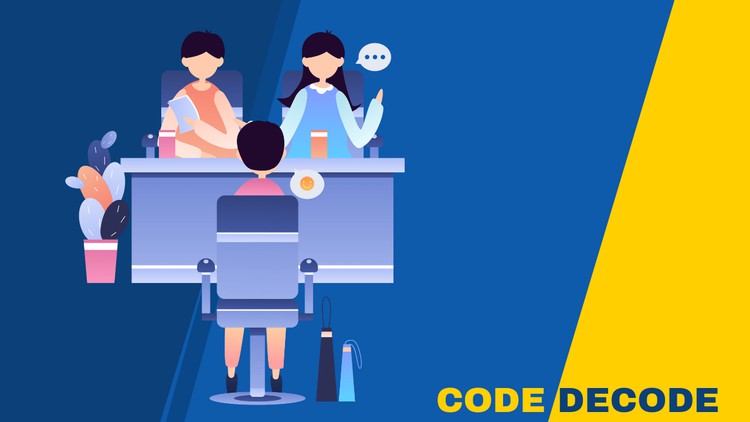Java Developer Interview Preparation Course

Why take this course?
🎓 Java Developer Interview Preparation 🚀
Headline: This course will prepare you for Java interviews, covering essential questions to master for both experienced professionals and freshers.
Course Description: Prepare yourself for the rigors of a Java interview with our comprehensive course designed to cover the most asked Java Interview Questions. Whether you're a seasoned professional or just starting out, this course will equip you with the knowledge necessary to ace the basic technical rounds of your job interviews. 🤝
Why This Course?
- Limited Content: Due to Udemy's limitation of uploading only 2 hours of free content, we've had to condense our entire course into a concise yet powerful module. But fear not! We've segmented the course into basic, intermediate, and advanced levels so that no matter where you are in your Java journey, you can find your starting point.
- Upcoming Advanced Courses: Keep an eye out for our upcoming intermediate and advanced level courses, which will delve deeper into Java concepts. 🌟
Objective of the Course: The primary goal of this course is to make you interview ready, confident, and motivated. We aim to cover a broad range of topics in just 2 hours, providing you with a solid foundation to build upon. Here's a glimpse of what we'll be discussing:
Course Highlights:
- Java Fundamentals: Understand why Java is not 100% Object Oriented and whether Java uses Pass by Value or Pass by Reference. 🤓
- Advanced Concepts: Learn about Covariant return type, Equals and Hash Code contract, and the immutability of String in Java. ⚛️
- Performance Tuning: Discover what JIT compiler does and why pointers are not used in Java. 🚀
- Design Patterns & Best Practices: Explore how to make a class Immutable, implement the Singleton design pattern, and understand how to break it (for educational purposes, of course). 🔧
- Collections Framework: Dive into the Collection Hierarchy, understand the nuances between List, Set, Queue, and Map interfaces, and explore the difference between fail fast and fail safe Iterators. 📚
- Concurrency: Learn about Blocking Queues, the differences between synchronized collections and concurrent collections, and the internal workings of HashMap. 🔁
- Java 8 & Beyond: Find out why Java 8 was introduced and its advantages, as well as what Lambda expressions are. 🎉
What You'll Learn:
- Why Java is not fully Object Oriented: A discussion on primitives like
int,char, etc. - Pass by Value vs Pass by Reference: Understanding the difference and its implications in Java.
- Covariant return type: Its meaning and significance in Java's Generics.
- Equals and Hash Code contract: Ensuring proper overriding to maintain data integrity.
- Pointers absence: The design philosophy of Java.
- JIT Compiler: How it enhances performance in Java applications.
- String Immutability: Why Java's String is immutable and what are the benefits.
- Marker Interface: Understanding its role, such as
Serializable. - Overriding Methods: The limitations like overriding private or static methods.
- Exception Handling: The role of
finallyand when it's guaranteed to run. - Object Class Methods: A comprehensive overview of what the Object class offers.
- Creating Immutable Classes: Techniques for making a class immutable for thread safety.
- Singleton Design Pattern: Implementing a single instance class, its benefits, and how it can be subverted.
- Collection Hierarchy: A detailed explanation of interfaces and their implementations.
- Map vs Collection: Understanding the differences and use cases.
- Blocking Queue: A deep dive into thread synchronization mechanisms.
- Concurrent Collections: Knowing when to use them and how they differ from synchronized collections.
- HashMap Internals: How it stores, retrieves data, and resolves collisions.
- Java 8: The impetus for its introduction and the advantages it brings, including Lambda expressions.
Join us on this journey to master Java interview questions! With this course, you'll be well-equipped to face your interviews with confidence and a deep understanding of Java's core concepts. Let's embark on this learning adventure together! 🎖️
Loading charts...